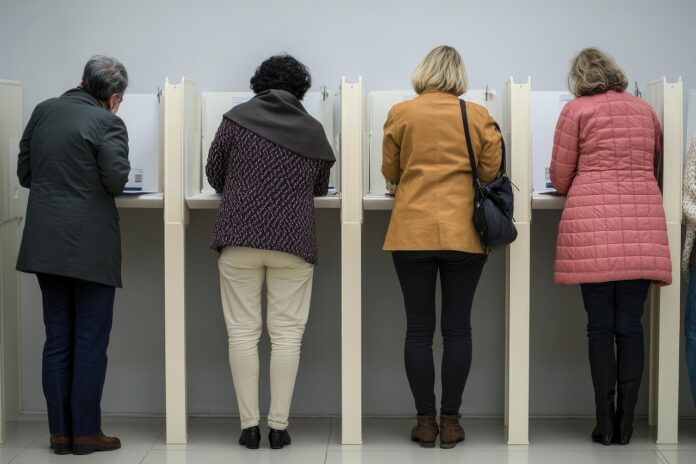Would you like to make some easy money? Here’s what you do: bet any passerby on the street that they cannot name their EU representative. If you want to earn more, double the bet and ask them which political faction their representative belongs to in the European Parliament. This suggestion is flippant—but it is also too true and too sad.
This challenge raises the question of what can be done to improve the visibility of the EU and its representatives, and to dispel the impression many citizens have of the organization as a bloated bureaucracy. It’s an important question because it strikes at the very heart of democratic legitimacy in the EU.
One of the EU’s biggest challenges is the “communication gap” between what it does and what citizens think it does. Many Europeans feel distant from Brussels, even though the EU influences much of their daily lives.
As a result, many citizens don’t really know who their representatives in the European Parliament are, what they actually do, or how their work affects everyday life. Bridging that gap requires both better communication and a deeper local presence.
Much can be done to improve the image and legitimacy of the institution simply by explaining how Members of the European Parliament (MEPs) play a vital role in developing projects that directly affect EU citizens. Below are some ideas that can be implemented on a local scale:
Be More Present and Visible at Home
-
Maintain active local constituency offices that hold regular open days—not just during election time.
-
Host community discussions about EU policies (e.g., digital rights, agriculture, migration) and how they impact local communities.
-
Cooperate with municipalities, schools, and NGOs to organize “EU Days,” where citizens can meet their MEPs in person.
In a recent commentary in Brussels Report on Eurospeak, I made some suggestions for replacing Eurospeak with more accessible language. Here are a few ideas in that direction:
Drop the Technocratic Jargon; Communicate in Clear Language
-
Instead of saying, “I work on the ECON committee shaping financial regulation,” say, “I help make rules to keep banks fair and protect your savings.”
-
Explain votes and policies through real-life examples—who benefits, what changes, and what’s at stake.
By developing a strategy that works closely with local constituencies, much can be achieved through an imaginative, straightforward campaign that focuses on the basics of the job:
Leverage Local and Regional Media
-
Regular newsletters or radio segments: use various media platforms to explain what’s happening in the European Parliament.
-
Press briefings in the local language: instead of Brussels press releases, offer summaries in clear, region-specific language.
-
Collaborate with journalists: invite local reporters to Brussels or Strasbourg to cover EU debates relevant to their region.
People are too busy living their daily lives to study the minutiae of EU resolutions and directives. It’s up to EU parliamentarians to bring this legislation to life and connect it to the bread-and-butter issues that concern citizens.
Connect the EU Agenda to Everyday Issues
-
Show local examples of EU impact: highlight where EU funds are used locally—roads, broadband, green projects—and explain the MEP’s role in securing them.
-
Link EU debates to local concerns: for instance, connect discussions on agricultural reform to local farmers’ challenges, or digital policy to local startups.
-
Share citizen success stories: show how EU policies have helped individuals or businesses in your constituency.
Understanding the mechanics and advantages of the EU should also be part of every Member State’s educational curriculum:
Engage Youth and Schools
-
Visit schools and universities: talk with students about how EU laws are made and how they can participate (e.g., through the European Youth Event or Erasmus+).
-
Offer mentorship programs: internships or “follow an MEP for a day” opportunities.
-
Gamify learning: partner with teachers to create interactive simulations of European Parliament debates.
Finally, as challenging as it may be, engage with other MEPs from different political factions within the Parliament:
Work Together Across Party Lines
-
Joint constituency events: despite political differences, MEPs from the same country could occasionally hold joint “Meet your MEPs” events to discuss and present their positions on national interests.
-
Shared information portals: explain who represents which region, what they’re working on, and how to contact them.
Keeping an ear close to the ground is vital for MEPs to better understand the opinions of their constituencies. Staying connected to local concerns builds trust, strengthens accountability, and reminds citizens that their voices matter in shaping the future of Europe. At a time when many feel distant from political institutions, regular engagement with voters is essential to maintaining the relevance of the European Union.
Disclaimer: www.BrusselsReport.eu will under no circumstance be held legally responsible or liable for the content of any article appearing on the website, as only the author of an article is legally responsible for that, also in accordance with the terms of use.













